News
A Dog Named Buhari and A Hippo Named Patience by Reno Omokri
Really? Is this how low Nigeria has sunk?
About two weeks ago, Chinakwe’s hero, President Muhammadu Buhari, ordered the police to reopen the cold case murder mysteries involving Bola Ige, a former Attorney General of the Federation and Chief Aminasoari Dikibo, a one time ex-Deputy National Chairman, South-South, of the Peoples Democratic Party.
Little or nothing has been heard from the police since that order was given only for Nigeria to wake up to the almost telenovela tale of a dog named Buhari. When they are meant to deliver results, the police is busy delivering activity. Comical activity.
Perhaps what I find most interesting is that a man can be arrested for naming his dog after his hero yet in this very same country no one thought it wrong when the First Lady, Aisha Buhari, called a man, and not just any man, but a governor at that, a ‘mad dog’!
Now I get it! In today’s Nigeria, you can name a man after a dog without consequence but you cannot name a dog after a man without consequences!
Do you see how low Nigeria has fallen? Perhaps our police would like to visit the netherworld to arrest the late English novelist, George Orwell, for naming the pig in his allegorical novel, Animal Farm, after the French Emperor, Napoleon Bonaparte.
Didn’t Chinua Achebe write that “when an adult is in the house, the she-goat is not left to suffer the pains of parturition on its tether.”
But why should I be surprised? Hasn’t Nigeria degenerated to become an ‘Animal Farm’? Just like in Orwell’s novella, we are living in a country where animals have displaced humans.
Why won’t our morals become warped to the extent that we care more for animal rights than for human rights when elders like Professor Wole Soyinka did not see anything wrong in calling the wife of a seating President a ‘Hippopotamus’?
Why won’t our morals go to the dogs when our government is more interested in protecting the rights of cows via grazing reserves rather than protecting the lives of its own citizens by way of prosecuting killer herdsmen, who, as our president assures us, are from ‘Libya’? These marauders, who have killed thousands of innocent Nigerians in the last 18 months have for some reason become so bold even as our security agents have become so timid before them.
And the case of Joe Fortemose Chinakwe exposes a troubling pattern. We seem to have a government that cares more for the right of certain categories of foreigners than for the right of its own citizens.
Why do I say so?
Well consider that the complainant who lodged a complaint with the police against Mr. Chinakwe is allegedly a foreigner from Niger Republic (by the testimony of Mr. Chinakwe). On the strength of a complaint by a foreigner that he feels offended by the name a Nigerian chose to give his dog, the Nigerian police swung into action and became so efficient overnight that it sent its men to fetch the erring Chinakwe and locked him up for his audacity.
Then also consider that the herdsmen (notice I said herdsmen, not Fulani herdsmen) that have killed thousands of Nigerians are said, by no less a personality than our President, to be foreigners from faraway ‘Libya’ and perhaps other nations in between.
Now we have established the pattern. But why is the pattern troubling?
It is troubling because it is beginning to seem that when the interests of Nigerian citizens clash with the interests of certain classes of foreigners, the interest of the foreigner prevails over the interest of the Nigerian.
And there are more instances to prove my hypothesis.
I was recently in Nigeria to preach at a church in Abuja and I noticed that foreigners clear through immigration faster than Nigerian citizens at our airports. At foreign airports the reverse is the case. Citizens clear faster than foreigners.
I am betting that I am not the only one who has experienced this anomaly.
What is it with Nigerians? It is this same attitude that makes us worship anybody with a foreign accent. We do not like ourselves and we like foreigners and yet we expect foreigners to like us.
Foreigners are not fools, you know. They will find it difficult to like us if we do not like ourselves. After all we know ourselves better than they know is, and if we do not like ourselves then that sends a red flag to the foreigner.
And to the Nigerian police, let me say that the popular flutist Tee Mac Omatshola Iseli has a dog named Obasanjo (seriously, he does). Should he also prepare for arrest?
What more can I say? Nigeria never ceases to amaze!
Omokri is the founder of the Mind of Christ Christian Center in California, author of Shunpiking: No Shortcuts to God and Why Jesus Wept and the host of Transformation with Reno Omokri
News
Wole Olanipekun, Taiwo Oyedele Urge South-West Governors to Maximise Tinubu Presidency for Regional Growth
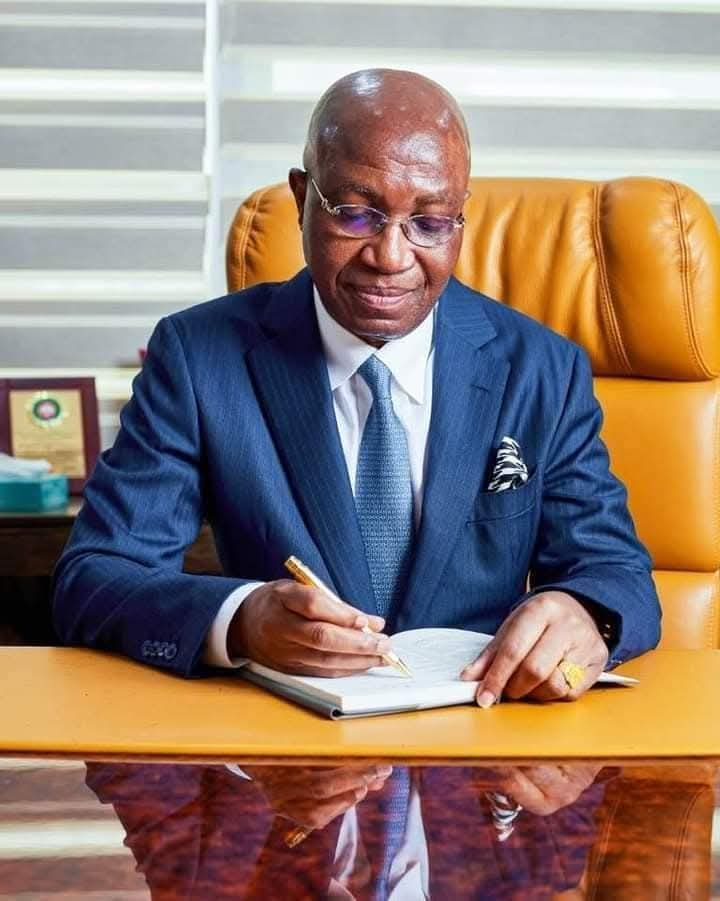
Senior Advocate of Nigeria (SAN), Wole Olanipekun, and Chairman of the Presidential Fiscal Policy and Tax Reforms Committee, Taiwo Oyedele, have called on South-West governors and political leaders to fully leverage President Bola Tinubu’s administration to drive accelerated development across the region.
The duo made the call on Monday in Akure, Ondo State capital, while speaking at a public lecture organised as part of activities marking the 50th anniversary of Ondo State’s creation.
They stressed that the South-West must prioritise massive investments in infrastructure, industrialisation, and economic reforms during Tinubu’s tenure to secure long-term regional prosperity.
Olanipekun cautioned that the political advantage of having a South-West president is temporary, noting that President Tinubu’s tenure will come to an end after his second term in 2031.
According to him, the region must act decisively within this window to strengthen its economic base and ensure sustainable development beyond the current administration.
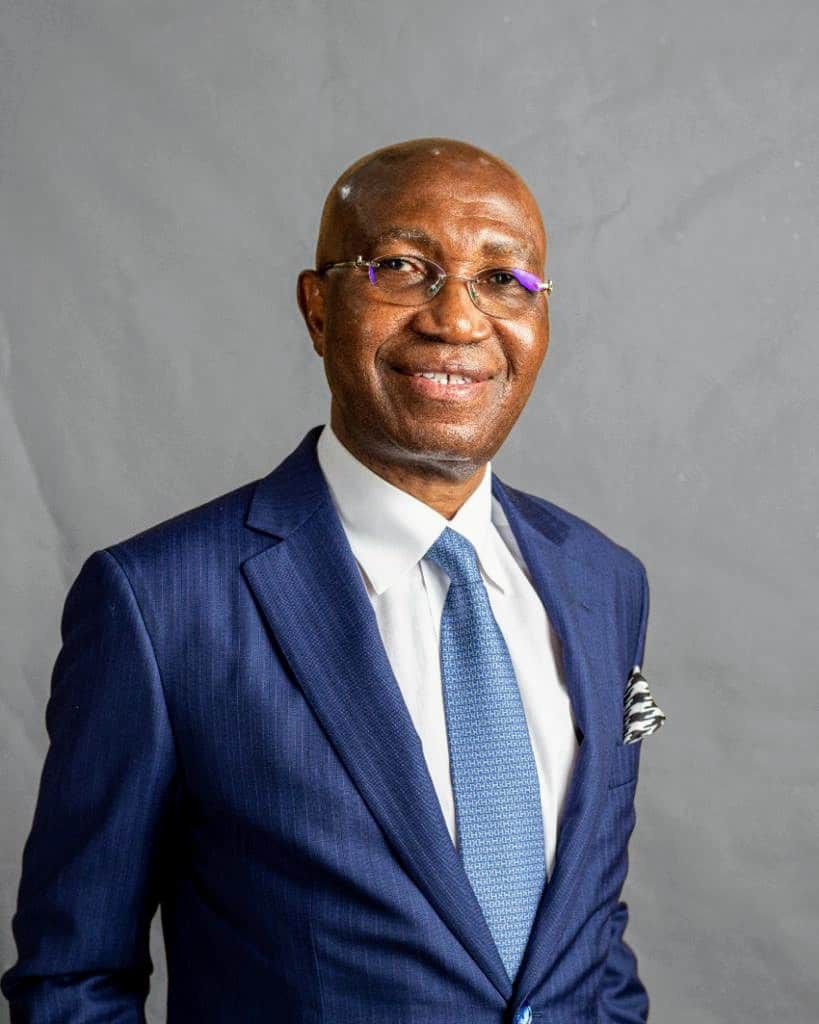
News
BREAKING: Malami Tells Court He Earned ₦12bn+ Legitimately, Seeks Release of Seized Properties
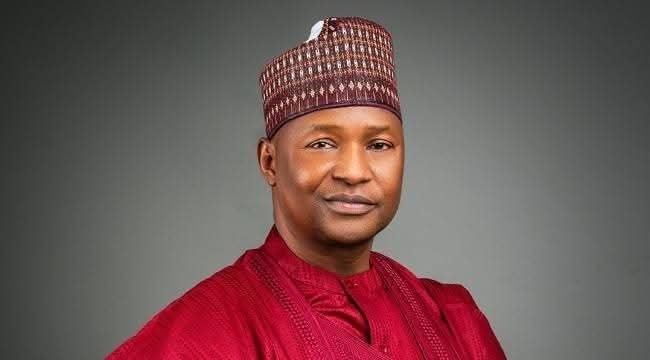
Former Attorney-General of the Federation, Abubakar Malami (SAN), has disclosed details of his earnings while asking a Federal High Court in Abuja to set aside an interim order authorising the seizure of 57 properties allegedly linked to him.
Malami made the disclosure through his counsel, Joseph Daudu (SAN), in a motion on notice filed before the court. The application seeks to vacate an interim forfeiture order affecting three of the 57 properties currently under investigation by the Economic and Financial Crimes Commission (EFCC).
According to the court filing, Malami stated that he had fully and transparently declared his sources of income in his asset declaration submitted to the Code of Conduct Bureau (CCB).
The document outlined multiple income streams, including:
₦374.63 million earned from salaries, estacodes, severance allowances, and related entitlements.
₦574.07 million generated from the disposal of personal assets.
₦10.01 billion recorded as turnover from private business ventures.
₦2.52 billion issued as loans to various businesses.
₦958 million received as traditional gifts from personal friends.
₦509.88 million realised from the launch and public presentation of his book titled “Contemporary Issues on Nigerian Law and Practice: Thorny Terrains in Traversing the Nigerian Justice Sector – My Travails and Triumphs.”
Malami’s legal team argued that the declared earnings sufficiently explain the source of funds used to acquire the properties in question, urging the court to lift the interim seizure order.
The matter remains pending before the Federal High Court as the EFCC continues its forfeiture proceedings.
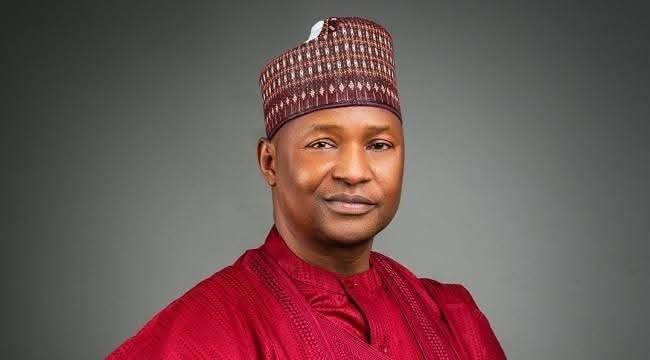


News
MAN Urges Federal Government to Stop NAFDAC’s Sachet Alcohol Ban, Warns of ₦1.9 Trillion Loss
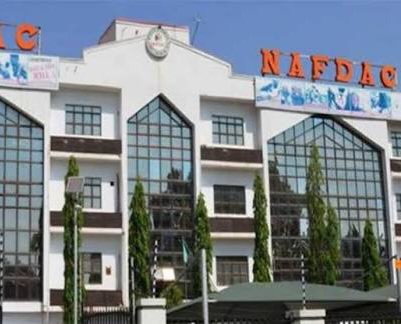
The Manufacturers Association of Nigeria has appealed to the Federal Government to restrain the National Agency for Food and Drug Administration and Control from proceeding with its ban on alcoholic beverages packaged in sachets and small PET bottles, warning of catastrophic economic consequences.
In a statement issued by Director-General Segun Ajayi-Kadir, MAN described NAFDAC’s renewed enforcement action as detrimental to indigenous industrial operators and fundamentally inconsistent with earlier government directives.
The manufacturers’ body emphasized that NAFDAC’s recent move directly contradicts the House of Representatives resolution dated March 14, 2024, which specifically restrained the agency from implementing the punitive ban following comprehensive stakeholder consultations through a public hearing.
“Rather than abiding by the generally agreed resolution, NAFDAC bided its time and chose to rely on a resolution of the Senate that was devoid of the usual stakeholders’ engagement,” Ajayi-Kadir stated, noting that operators now face confusion over conflicting directives from different arms of government.
MAN warned that enforcing the ban would devastate Nigeria’s manufacturing sector, threatening over ₦1.9 trillion in existing investments and triggering the retrenchment of more than 500,000 direct employees alongside approximately five million workers in the indirect value chain.
The association cautioned that the restriction would paradoxically undermine public health by creating market opportunities for illicit, substandard and unregulated products beyond the control of regulatory authorities.
“This is counterproductive as it will open up the market for illicit, sub-standard, and unregulated products. It will lead to an influx of imported alternatives, mostly smuggled. It will deny the government of revenues collectable from the companies,” Ajayi-Kadir declared.
The manufacturers’ group emphasized that alcohol served in sachets by local producers is manufactured under hygienic conditions and certified by regulatory agencies including NAFDAC itself, making the ban particularly contradictory.
MAN also challenged the untested assertion that sachet alcohol drives underage consumption, citing credible and empirical research that contradicts this claim. The industry has independently invested over ₦1 billion in nationwide media campaigns promoting responsible alcohol consumption and discouraging underage abuse.
The association stressed that banning certified products would deny adult consumers with limited budgets access to regulated alcoholic beverages while simultaneously depriving the government of substantial tax revenues.
Food, Beverages and Tobacco Senior Staff Association and National Union of Food, Beverages and Tobacco Employees have joined MAN in opposing the ban, demanding that NAFDAC provide empirical evidence that sachet alcoholic beverages are being consumed by children.
Labor unions have called for the suspension of NAFDAC Director-General Professor Mojisola Adeyeye, accusing her of siding with multinational companies to undermine local manufacturers.
However, NAFDAC has maintained its position, with Adeyeye insisting that enforcement is backed by law following the Senate’s unanimous resolution setting a December 2025 deadline that has now passed.
The NAFDAC chief argued that the proliferation of high-alcohol-content beverages in sachets has made such products easily accessible, affordable and concealable, contributing to widespread misuse and addiction among minors and commercial drivers.
“This public health menace has been linked to increased incidences of domestic violence, road accidents, school dropouts, and social vices across communities,” Adeyeye stated, describing the ban as protective rather than punitive.
In contrast, civil society organization Socio-Economic Rights and Accountability Project has approached the Federal High Court in Lagos seeking injunctive orders to prevent the Federal Government from interfering with NAFDAC’s statutory powers to enforce the ban.
SERAP argues that continued circulation of sachet alcohol violates the National Health Act 2014, the NAFDAC Act and international commitments under the World Health Organization’s Global Strategy to Reduce Harmful Use of Alcohol.
The legal and economic battle over sachet alcohol highlights deeper tensions between public health regulation, economic survival and stakeholder consultation in Nigeria’s policymaking process, with no clear resolution in sight as multiple court cases and regulatory actions unfold simultaneously.
-

 News2 years ago
News2 years agoHardship: We Plan To Establish A National Commodity Board To Crash Food Prices – VP Shettima
-
News8 years ago
Blog Reader; Samson Osagiede Celebrates Fiancè Benedicta Daniels’s Birthday With Sweet Words
-
Home9 years ago
News Channel claims Donald Trump is an orphan from Pakistan,share alleged childhood photo
-
Home9 years ago
Another $175m Found in Patience Jonathan’s wife’s firm’s Bank Account
-
Home9 years ago
Oil Spillage: House of Reps Member Shares Photos of the Water her Constituents Drink .
-
Home9 years ago
Zara Buhari & Ahmed Indimi’s Wedding Access Card
-

 Sport7 years ago
Sport7 years agoModric, Marta Wins 2018 FIFA Best Player Of The Year Awards ⚽️
-
News8 years ago
The Best Video You’ve Seen Today?

